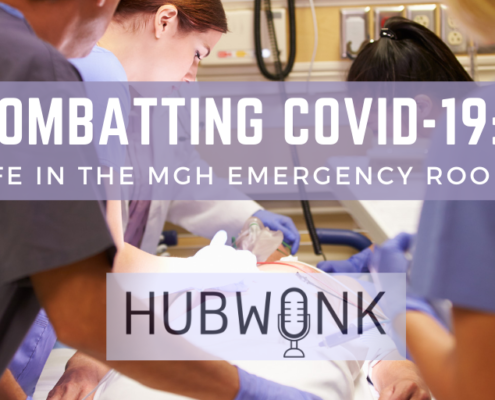Pioneer Experts Offer Contrasting Prescriptions For MA Healthcare
Uncertainty over future of Affordable Care Act impacts state policy decisions
BOSTON – New policy briefs from Josh Archambault and Barbara Anthony, two senior fellows in healthcare at Pioneer Institute, offer differing prescriptions for how Massachusetts should navigate uncertainty in the healthcare market, as Congress debates the fate of the federal Affordable Care Act (ACA).
In “What Massachusetts Should Do in an Uncertain Healthcare World,” Josh Archambault argues that the Commonwealth should focus on providing access to care rather than just insurance coverage, and should adopt successful reforms from other states. With the potential that at least some provisions of the Affordable Care Act may be repealed, he contends that Massachusetts leaders should not simply default to what we had prior to the ACA.
“All options should be on the table and state policy makers should look to successful reforms in other states,” Archambault said. “Massachusetts cannot afford the status quo and we need to be bold and open to new ideas for both the commercial and Medicaid markets.”
Archambault argues that MassHealth, the Commonwealth’s Medicaid program, has expanded so much that nearly two million of 6.8 million state residents are now enrolled in a taxpayer-funded safety net program. “We now almost have the same percentage of our population enrolled in Medicaid as much less wealthy West Virginia does,” Archambault said. “At over $16 billion annually, MassHealth accounts for more than 40 percent of the state budget, and is starting to crowd out spending on education, public safety and infrastructure.”
Archambault proposes a renewed focus to move more residents into private commercial insurance.
To make the commercial market affordable to those on Medicaid, Archambault offers numerous free-market solutions that should be considered in a post-ACA world. He discusses changing insurance regulations and rules that govern medical providers, taking a hard look at the Connector’s mission and reason for existence, looking at invisible risk-sharing to help those with pre-existing conditions, and enhancing transparency by giving rebates to patients who choose high-value providers.
Barbara Anthony offers a different perspective in “What Massachusetts Should Do as Uncertainty Engulfs the U.S. Healthcare System.” Anthony argues that America has a “mixed economy” with both free market principles and social welfare programs that “lift all boats,” and this hybrid should infuse the current healthcare debate. According to Anthony, “it is in our national self interest to find solutions that preserve both free market principles and the interdependence of our common welfare.”
Anthony argues that the Commonwealth should keep laws guaranteeing that no one is denied insurance due to pre-existing conditions, and that Massachusetts continue the individual mandate. Anthony asserts that health insurance works best when everyone – healthy, sick, young and old – is insured under the biggest umbrella. “Lack of access to healthcare leads to poor public health outcomes, and ultimately we all pay for that.” She added, “In this country, your ticket to healthcare is called insurance coverage.”
Anthony offers a 10-point program to Massachusetts policymakers that includes increasing individual penalties for those who do not purchase affordable insurance, government action to bring prices of entities with entrenched market power more in line with what a competitive market might produce, an assessment on employers whose low-wage employees have swelled the Medicaid programs, more open disclosure from MassHealth/Medicaid about cost savings resulting from the managed care directives that MassHealth was required to adopt, and more vigorous state Division of Insurance review of carrier rate requests.
More on Medicaid
Archambault argues that despite the fact that the state spends over 40 percent of its annual budget on on Medicaid, recipients often struggle to gain access to healthcare providers. He points to surveys conducted by the Massachusetts Medical Society (MMS) that have found that even though Massachusetts has the most doctors per capita of any state, at times just 50-60 percent of internal medicine and 60-70 percent of family medicine offices accept Medicaid patients. Archambault says the problem is even worse in some parts of the Commonwealth and for specialists. For those not on Medicaid, the percentage of offices accepting new patients was 85-to-more-than-90 percent.
In terms of reining in Medicaid spending, Anthony argues specifically companies that either don’t offer coverage or don’t attract substantial numbers of employees to the plans they do offer should play a role in solving the Medicaid funding problem. She says a recent proposal by Partners CEO and President David Torchiana merits consideration.
Dr. Torchiana recommended that employers above a certain size that have low-income workers on Medicaid should be required to pay the Commonwealth a per-employee fee in place of the premium contribution they would have made toward employee health insurance. The contribution would be less than the cost of employer-sponsored insurance, so employers would still benefit but the concept of employer responsibility would be maintained.
Anthony sees three options when it comes to Medicaid spending. Anthony argues that the state must treat program integrity as a matter of ongoing review, removing ineligible program participants on a regular basis. Beyond that, the Commonwealth’s options are limited to either tightening eligibility requirements (thereby limiting access) or opting out of the ACA’s Medicaid expansion; these latter two options would have undesirable public health consequences and would cause major policy upheavals.
Anthony does not find Archambault’s proposals to make private insurance more affordable (thereby allowing more Medicaid enrollees to afford commercial coverage) realistic. She thinks premiums would have to fall far below what even subsidized plans currently cost before large numbers of people at or near the federal poverty line would be able to afford private insurance.
Transparency
Archambault urges Massachusetts to look at programs from two other New England states. New Hampshire saved $12 million and patients received $1.2 million in incentive payments for choosing lower-cost, high-value providers. In Massachusetts, the Group Insurance Commission is piloting a similar program. This approach reduces costs and rewards innovative providers, and should be expanded to more individuals in the state.
This is an area where Anthony and Archambault agree. Both support incentive-based transparency programs. She urges that the Commonwealth become more aggressive in promoting healthcare price transparency and calls for greater leadership by the executive branch, the attorney general’s office and the business community.
Helping Those with Pre-Existing Conditions
Archambault wants more than transparency and advocates strongly for a risk-sharing plan that was implemented in Maine before it was superseded by the ACA. Maine had an invisible risk-sharing/risk-pool program that didn’t segment individuals with pre-existing conditions out of the “regular” individual insurance market or charge them a higher premium. Instead, insurers determine who to designate for the program based on health information. The end result was lower premiums for all age groups and coverage for individuals with pre-existing conditions and those with very high medical costs.
This approach causes carriers to price coverage as if all policy holders are healthy rather than all sick. Premiums of Maine’s largest issuer fell by about 70 percent for the young and by about half for older residents, making it more likely that young, healthy individuals would sign up for insurance.
Anthony counters that the Maine program resulted in some benefit cuts, including maternity care, additional cost-sharing and higher out-of-pocket costs. While she recognizes that the Maine program did not stigmatize those with pre-existing conditions or charge them higher premiums, she is very concerned about high-risk pools in general, now that the House of Representatives has passed the American Health Care Act (AHCA).
Anthony points out that under the AHCA, which would effectively repeal the Obamacare mandate to purchase insurance, states would be allowed to permit insurers to charge people with pre-existing conditions more for coverage than those without such conditions. States would be able to do this if they set up high-risk insurance pools or other mechanisms to mitigate risks to insurers with high-cost patients. According to Anthony, “the poor history of high-risk pools is resurfacing thanks to the AHCA.”
Recent articles in the New York Times and CNN Money stated that there were 35 pools around prior to the ACA. According to Anthony, these reports highlight that the main problem with high-risk pools is that they were underfunded, typically charged higher prices, often contained annual and/or lifetime caps on coverage, and covered only a fraction of those who were potentially eligible.
About the Authors:
Barbara Anthony, lawyer, and well-known consumer advocate, is a Senior Fellow at Pioneer Institute focusing on healthcare price and quality transparency. She is also an associate at the Harvard Kennedy School’s Center for Business and Government. She served as Massachusetts Undersecretary for Consumer Affairs and Business Regulation from 2009 to 2015. She has been quoted and cited in The Washington Post, Becker’s Healthcare, The Boston Globe, the Boston Herald, The Boston Business Journal, State House News Service, Worcester Telegram & Gazette, the Springfield Republican, and CommonWealth magazine, and has been interviewed on WBUR, WBZ, and television news programs in Greater Boston and across the country.
Josh Archambault is a Senior Fellow at Pioneer Institute. Prior to joining Pioneer, Josh worked at the Heritage Foundation, as a Legislative Director in the Massachusetts State Senate, and as Senior Legislative Aide in the Governor’s Office of Legislative Affairs. His analysis has appeared in news outlets such as USA Today, Wall Street Journal, The New York Times, Fox News, NPR, Boston Herald and The Boston Globe. Josh holds a Master’s in Public Policy from Harvard University’s Kennedy School and a BA in Political Studies and Economics from Gordon College.
Pioneer Institute is an independent, non-partisan, privately funded research organization that seeks to improve the quality of life in Massachusetts through civic discourse and intellectually rigorous, data-driven public policy solutions based on free market principles, individual liberty and responsibility, and the ideal of effective, limited and accountable government.
Get Updates On Our Healthcare Research and Events!
Recent Research:




















